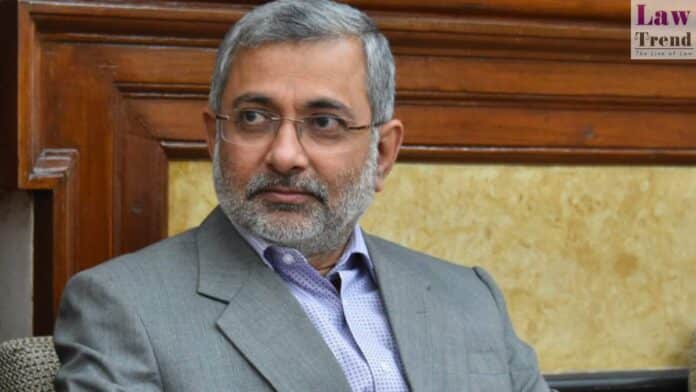In a significant address following the controversial removal of the blindfold from the Lady Justice statue at the Supreme Court, former Supreme Court judge Justice Kurian Joseph shared his insights on the enduring symbol of judicial impartiality. Justice Joseph emphasized the blindfold’s role in depicting that justice is administered without regard to the identity of the parties involved.
According to Justice Joseph, the blindfold signifies that justice should be dispensed equally and impartially, irrespective of who is standing in the courtroom. “It doesn’t matter who appears before you. It doesn’t matter who is the person before you. Therefore, that was the reason why the deity of justice had the blindfold,” he explained during his acceptance speech for the Prof. Dr. NR Madhava Menon Memorial Award “Tribute of Honour” by the Bar Council of Kerala.
Highlighting the importance of maintaining institutional traditions over individual preferences in how symbols like the blindfold are represented, Justice Joseph remarked on the essential role of systemic practices in upholding judicial integrity.
Moreover, in response to replacing the statue’s sword with a copy of the Indian Constitution, Justice Joseph approved of the modification but stressed that the Constitution should symbolize both defense and authority — a protector of rights and a deterrent against violations.
During his speech, Justice Joseph also addressed broader challenges facing the judiciary, including the effectiveness of the collegium system in preserving judicial independence. Despite his involvement in striking down the National Judicial Appointments Commission (NJAC) in 2015, he acknowledged the system’s shortcomings and proposed a restructured judicial appointments commission. This new commission would include the Chief Justice, two senior-most judges, the Law Minister, and the Leader of the Opposition to enhance transparency and independence in judicial appointments.
Justice Joseph also proposed adjustments to the “master of the roster” system, suggesting it should be overseen by a group of senior judges to mitigate potential biases and enhance fairness in case allocations.
Further delving into the judiciary’s operational challenges, he advocated for synchronized calendars across the High Courts and lower courts to better manage caseloads and reduce judicial stress. He commended the lower court judges, who often face immense pressure and receive less recognition despite their significant contributions to the justice system.
Concluding his remarks, Justice Joseph underscored the necessity of addressing these institutional issues to restore public confidence and ensure a robust and independent judiciary.




